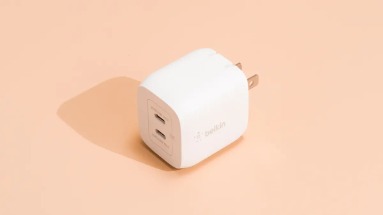In today’s digital age, where smartphones, tablets, and other electronic devices have become indispensable parts of our daily lives, concerns about power consumption and energy efficiency have become increasingly prevalent. One common question that arises is whether using a USB charger for our devices is more power-consuming compared to traditional chargers. Let’s delve into this topic to separate fact from fiction and debunk any misconceptions.
USB chargers have gained popularity due to their versatility, compatibility, and convenience. They come in various forms, from wall adapters to car chargers, and can charge a wide range of devices, including smartphones, tablets, cameras, and more. However, some individuals have raised doubts about their energy efficiency, fearing that they may consume more power than conventional chargers.
To address this concern, it’s essential to understand how USB chargers work. USB chargers typically operate at a standard voltage of 5 volts, regardless of the device being charged. This voltage is regulated by the charger itself to ensure a stable and safe charging process. Additionally, modern USB chargers often incorporate advanced technologies such as smart charging, which optimizes the charging speed and efficiency based on the device’s requirements.
Contrary to popular belief, using a USB charger does not inherently result in higher power consumption. In fact, USB chargers are designed to be energy-efficient, with many models meeting stringent energy efficiency standards set by regulatory bodies. These standards ensure that USB chargers minimize energy waste and operate efficiently, even when charging multiple devices simultaneously.
Moreover, USB chargers have the advantage of being more compact and lightweight compared to traditional chargers, which often require bulky adapters and cables. This compact design not only makes USB chargers more convenient for travel and everyday use but also reduces material and energy consumption during manufacturing and transportation.
Another factor to consider is the charging efficiency of the device itself. While the charger plays a crucial role in delivering power to the device, the device’s internal circuitry and battery management system also influence overall energy consumption. Devices with inefficient charging circuits or poorly optimized battery management may consume more power regardless of the charger used.
It’s also worth noting that advancements in technology have led to the development of even more energy-efficient charging solutions, such as USB Power Delivery (USB PD) and Qualcomm Quick Charge. These technologies allow for faster charging speeds while maintaining high efficiency, further debunking the notion that USB chargers are inherently power-consuming.
In conclusion, the idea that USB chargers are more power-consuming is a misconception that fails to consider the advancements in energy-efficient charging technology. USB chargers are designed to be efficient, convenient, and versatile, offering a reliable solution for powering our electronic devices while minimizing energy waste. By choosing reputable USB chargers and adopting energy-saving practices, consumers can enjoy the benefits of modern charging technology without worrying about excessive power consumption.


